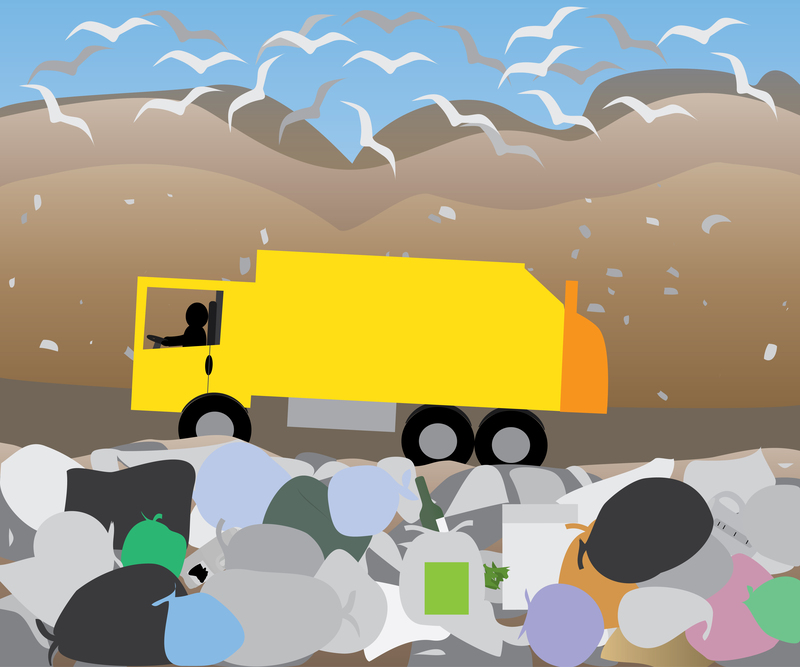Keep Your Bulky Waste Costs Down with These Recommendations
Managing bulky waste can become a significant expense, especially for homeowners, landlords, construction companies, and businesses. Reducing bulky waste disposal costs isn't just good for your budget--it's also essential for responsible environmental management. This comprehensive guide explores a variety of actionable steps and cost-saving strategies to help you keep your bulky waste costs down.
Understanding Bulky Waste and Why Costs Add Up
Bulky waste typically refers to large items that are too big to fit in regular waste containers. Examples include furniture, appliances, mattresses, garden waste, old carpets, and large electronic equipment. The cost of disposing these items often includes collection fees, landfill taxes, labor, transportation, and sometimes special treatment for hazardous components.
- Transportation: Large items require special vehicles or multiple trips, increasing fuel and labor costs.
- Disposal charges: Many municipal and private facilities charge per item or volume, particularly for items that need separate processing.
- Environmental levies: Items like mattresses and electronics may incur extra fees to cover environmentally responsible disposal.

Why You Should Rethink Bulky Waste Disposal
Disposing of bulky items without planning can lead to wasted money and missed sustainability opportunities. By selecting the right strategies, you can reduce bulky item removal expenses and even benefit others through reuse or donation.
Key Benefits of Cost-Effective Bulky Waste Management:
- Lower disposal costs
- Environmental preservation through recycling and reuse
- Support for local charities with usable goods
- Regulatory compliance, avoiding fines for improper dumping
- Better reputation for responsible citizens, landlords, and businesses
Top Recommendations to Keep Your Bulky Waste Costs Down
Now, let's dive into practical, actionable tips and strategies that you can implement to minimize your bulky waste management expenses.
1. Plan Ahead for Bulky Waste Disposal
One of the most effective ways to reduce bulky waste disposal costs is to plan your disposal activities well in advance. Instead of reacting to a pile-up of unwanted items, schedule regular clean-outs, and anticipate peak times when you might have larger quantities, such as spring cleaning or after property renovations.
- Organize community clean-up days to split costs with neighbors
- Consolidate waste before collection to qualify for bulk discounts
- Time your disposals with local free collection events
2. Explore Your Local Council's Free or Low-Cost Services
Many municipalities offer free or subsidized bulky waste collection for residents. Check your local council's website or contact their waste management department to know what items are covered, eligibility, and collection schedules. Leveraging these services can dramatically lower your out-of-pocket bulky waste charges.
- Use scheduled curbside pick-up events
- Register in advance to secure your slot
- Check for item limits and fees for surplus items
3. Maximize Reuse and Donation Opportunities
Before throwing away that old couch or fridge, ask yourself if it could be reused or donated. Many charities, shelters, thrift stores, and community organizations will collect usable items free of charge--sometimes even offering a tax deduction or donation receipt.
- Charity shops: Accept gently-used furniture and appliances
- Online marketplaces: List unwanted items for free or for sale
- Community groups: Use platforms like Freecycle or Buy Nothing
*By giving items a new life, you can save on disposal costs while supporting local causes.*
4. Break Down and Sort Bulky Items
Many collection services charge by volume or piece. By dismantling furniture, removing legs or doors from cabinets, or flattening boxes, you can reduce the amount of space used in collection vehicles, often paying less.
- Disassemble modular furniture
- Separate metal and wooden components for easier recycling
- Bunch similar materials together for more efficient processing
Sorting waste (e.g., electronics, wood, metal) makes it cheaper or even free to recycle at local centers.
5. Consider a Skip Bag or Shared Dumpster Hire
If you have multiple bulky items to dispose of at once, hiring a skip or skip bag may be a cost-effective alternative to individual item removal. Even better, share the skip with neighbors to split the fees--an easy way to keep your landfill costs down.
- Book in advance, as last-minute hires can cost more
- Fill the skip efficiently to maximize capacity
- Only include accepted items to avoid penalties
6. Take Advantage of Producer Take-Back Schemes
Regulations in many regions require manufacturers and retailers to provide free collection for old mattresses, electronics, and large appliances when you buy a new one. Be sure to ask about take-back schemes before your next big purchase.
- Some retailers collect your old item upon delivery of the new one
- Check manufacturer websites for recycling programs
- Compliance with take-back laws saves you disposal effort and expense
7. Negotiate with Private Waste Removal Services
When municipal options are unavailable, private bulky waste removal services can be convenient. However, rates are often negotiable, especially for larger loads or repeat business. Gather quotes from competing providers, and don't be afraid to bargain for a better deal or ask about discounts.
- Request volume or seasonal discounts
- Group collections for multi-property landlords
- Ask about eco-friendly removal options that may cost less
8. Use Specialized Recycling Facilities
Recycling centers and transfer stations often accept bulky waste at lower rates than landfills, especially for items with high metal or recyclable content (e.g., washing machines, bed frames).
- Check for free drop-off days for appliances or electronics
- Take separated materials directly to save handling fees
- Follow center rules for preparation and transport
*Many recycling facilities are mandated to accept certain items at no cost due to Extended Producer Responsibility (EPR) laws.*
9. Avoid Penalties and Illegal Dumping
Improperly disposing of bulky waste by fly-tipping or abandoning items can result in hefty fines, legal action, and clean-up charges from your local authority. Always use authorized disposal services and retain receipts or documentation as proof.
- Never leave items on pavements or in common areas unless scheduled for official collection
- Photograph items before and during collection for record keeping
- Ask contractors for waste transfer notes
How to Choose the Most Cost-Effective Bulky Waste Solution
The best method to minimize your bulky waste removal charges depends on a variety of factors, including your location, the amount and type of waste, and your available resources.
- Volume: A few small items can usually go with municipal services; for a full house clean-out, a skip or private hauler might be more economical.
- Condition: Usable items are best donated or listed on free platforms.
- Hazardous components: Always use specialists for things like fridges and TVs to avoid extra charges or environmental harm.
- Access: Properties in urban centers may have more free programs; rural areas may benefit from sharing or centralized drop-offs.
Cost Comparison Table: Bulky Waste Disposal Methods
| Disposal Method | Average Cost | Best For | Notes |
|---|---|---|---|
| Council Collection | Free - Low | Few items, planned disposal | Often limited to a set number per year |
| Donation/Reuse | Free | Usable items | May require scheduling or transport |
| Skip Hire | $$ - $$$ | Large/house clear-outs | Share with neighbors to reduce costs |
| Private Removal Service | $$ | Urgent, heavy or specialized items | Negotiable rates |
| Recycling/Transfer Centre | Low to Free | Sorted recyclables | Transport required |

Frequently Asked Questions About Bulky Waste Cost Control
What is considered bulky waste?
Items too large for normal bins--like sofas, beds, wardrobes, large appliances, carpets, and bikes. Sometimes garden debris, electronics, and "white goods" are included.
How many bulky items can I usually dispose of for free?
Most councils offer a specified number of free collections annually (often 1-3), with set item limits per event. Check your local provider for exact quotas and rules.
Is it cheaper to hire a skip or use a private bulky waste collection?
It depends on the amount and size of the items. Skips are more cost-effective for multiple/big items (especially for building waste), while a single-item pick-up by a private company may be cheaper for light but bulky items.
What are the penalties for illegal bulky waste dumping?
Fines for fly-tipping can range from hundreds to thousands of currency units and sometimes include prosecution fees or criminal records.
Conclusion: Smart Strategies to Slash Bulky Waste Costs
By planning ahead, taking full advantage of local authority schemes, reusing and donating what you can, breaking down items, and exploring the most suitable removal method, you can keep your bulky waste costs down and protect the environment at the same time. Always prioritize responsible, legal disposal--saving money is important, but sustainability and community benefit should never be neglected.
For more advice and local resources, reach out to your council or a reputable waste management provider today--your wallet and the planet will thank you!
- Want to save even more? Start a neighborhood waste reduction group and set up shared disposal or donation rotations.
- Keep an inventory of all major items to schedule ahead for free pick-ups.
- Opt for durable, recyclable, or reusable products to minimize future bulky waste challenges.
